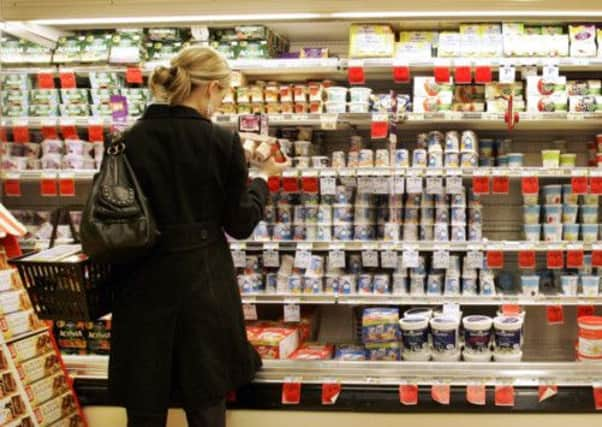One in 10 Scots borrows money to buy food


The study, by the Debt Advisory Centre Scotland, found young people – aged 18 to 24 – were most likely to have had to borrow money to be able to eat, while one in ten of the overall population said they had had to do so.
The price of food has rocketed in recent years due to soaring commodity costs and a growing global population, which has led to increased demand.
Advertisement
Hide AdAdvertisement
Hide AdThat, coupled with rises in the cost of utility bills and petrol and the fact that wages are failing to keep up with inflation, has squeezed the finances of a large number of households.
“The cost of food, gas and electricity has soared over the past few years,” said Ian Williams of Debt Advisory Centre Scotland.
“Many people use credit cards to buy food every day – sometimes to benefit from loyalty schemes and sometimes just to make ends meet. But unless you pay off your credit card balance in full every month, you are likely to be paying high charges on every pound you borrow. This could easily wipe out any savings you make by shopping carefully.
“The fact that so many people are having to borrow to meet their utility bills during the summer – when heating bills are usually lower – could signal real trouble approaching this winter.”
He added: “Most of us need to borrow a little money from time to time, but borrowing to pay for essentials such as food and utilities could be a sign that you are struggling financially.”
Those aged 35 to 44 were most likely to have borrowed to pay utility bills, followed by people in the 55 to 65 age group, Debt Advisory Centre Scotland said.
Margaret Lynch, chief executive of Citizens Advice (CAB) Scotland, said rising costs had put pressure on cash strapped families.
“These figures are very worrying, and show once again the harsh reality of how people are living in Scotland today,” she said.
Advertisement
Hide AdAdvertisement
Hide Ad“Hundreds of thousands of families are in this position where they don’t have enough money to put food on the table for themselves and their families. So many are turning to debt – which they know they won’t be able to repay. Others are having to go to foodbanks.
“If so many people are unable to provide something as basic as food, it’s clear that the system is failing.”
Ms Lynch warned that many people were turning to short- term lenders such as payday loan companies, to plug the gap.
“CAB advisers see people every day now who are in this situation,” she added. “One of our concerns is that by borrowing like this, they are storing up debts that they are unlikely to be able to repay, and so making their situation worse – particularly if they are using high-interest lenders like payday loans.”
Payday lenders, which offer “instant” loans, usually with high interest rates, have increasingly come under fire in recent months for targeting vulnerable groups.